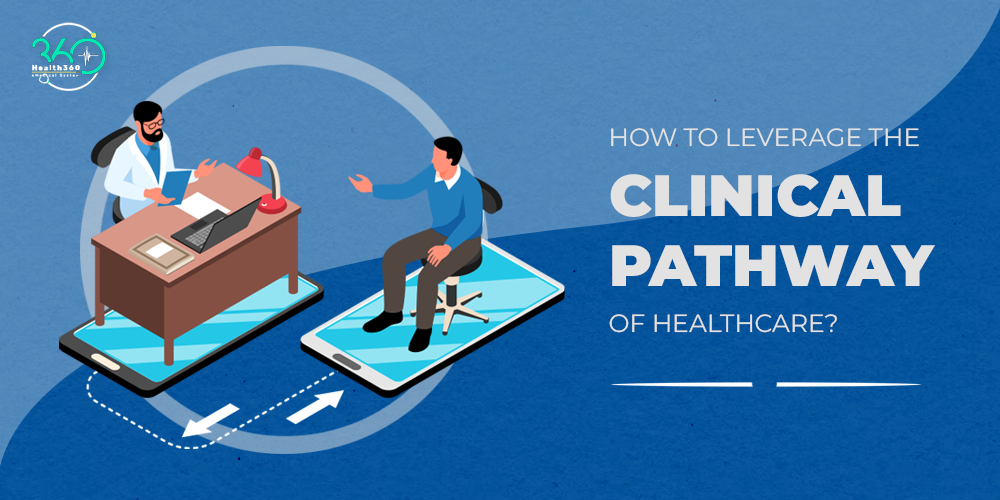
How to Leverage the Clinical Pathway of Healthcare?
Clinical pathways are a standardized set of guidelines that outline the recommended course of care for patients with a particular condition or disease. By leveraging clinical pathways, as a healthcare provider you can improve the quality of care, reduce variations in treatment, and improve patient satisfaction.
With hospital management software you can improve the clinical pathway of your healthcare. In this blog post, we will explore the benefits of using a hospital management system, how it works, and how it can leverage clinical pathways.
What is Clinical Pathway?
A clinical pathway is a standardized, multidisciplinary management tool for patients with a specific diagnosis or medical condition. It involves healthcare professionals across different specialties collaborating to follow evidence-based guidelines and achieve optimal patient outcomes. By following a clinical pathway, healthcare providers can improve the quality of care, reduce hospital stays, and minimize costs.
Understanding Hospital Management Software
Hospital management software is a digital tool that helps healthcare providers manage their day-to-day operations, including patient data, appointments, billing, and clinical workflows. This software typically consists of a suite of integrated applications designed to streamline administrative and clinical processes, improve communication among healthcare professionals, and enhance the patient experience.
Hospital management software can be divided into different modules, each designed to manage a specific aspect of healthcare operations. For example, electronic medical records (EMR) modules enable healthcare providers to store and manage patient information digitally, making it easier to access patient records and share them securely among different providers. Similarly, appointment scheduling modules allow patients to book appointments online, while also enabling providers to manage their schedules more efficiently.
Other common modules of hospital management software include billing and payment management, inventory management, and laboratory information management systems. These modules help healthcare providers automate routine tasks, reducing the risk of errors and freeing up staff time for more critical tasks.
Among these modules, choosing an online doctor appointment module can help leverage patient engagement, experience, and service quality. Let’s check it in detail.
Leveraging Clinical Pathways with Hospital Management System
Leveraging clinical pathways with hospital management software, particularly with the integration of an online doctor appointment booking module, can significantly enhance patient outcomes, streamline operations, and improve the overall quality of care.
By automating key tasks and enabling collaboration among care teams, hospital management software can help providers deliver evidence-based care that is personalized and timely.
An online doctor appointment booking module enables patients to schedule appointments online, reducing wait times and increasing patient satisfaction. At the same time, it allows healthcare providers to optimize their schedules and allocate resources more effectively.
By reducing the time patients spend waiting for appointments, providers can ensure that patients receive care at the right time, leading to better outcomes.
In addition to appointment booking, a hospital management system can also support clinical pathways by providing access to real-time patient data. With the help of in-app communication and data-sharing modules, healthcare providers can access patient records from anywhere and collaborate more effectively.
By leveraging hospital management software with clinical pathways, healthcare providers can deliver personalized care that is tailored to each patient’s needs. They can optimize their workflows, reduce administrative burdens, and streamline operations to focus on delivering the best possible outcomes.
Overall, a hospital management system can help healthcare providers improve access to care, reduce wait times, and provide better outcomes for their patients.
Personalized Hospital Management Software Development
Personalized development is frequently required to cater to the distinctive requirements of individual healthcare organizations. Custom hospital management software development empowers healthcare providers to customize their software to match their particular workflows, patient populations, and organizational objectives. Below are some reasons why custom development might be necessary:
- Unique Workflows: Healthcare organizations have their own unique workflows, which can be complex and vary depending on the type of care being provided. Custom software development can help streamline these workflows, reducing the administrative burden on staff and allowing them to focus on delivering quality care.
- Specific Patient Populations: Healthcare providers often cater to specific patient populations, such as pediatrics or geriatrics. Personalized software development can help providers address the unique needs of these populations, such as specific medications, dosages, and care plans.
- Compliance and Regulations: Healthcare organizations are subject to strict regulations and compliance requirements, which can vary by region or country. Custom software development can help ensure that healthcare providers remain compliant with these regulations and requirements, avoiding costly penalties and legal issues.
- Integration with Existing Systems: Healthcare organizations often have existing systems in place, such as electronic health record systems or laboratory information management systems. Custom software development can help integrate these systems with a hospital management system, enabling healthcare providers to access and share data seamlessly.
- Competitive Advantage: Custom software development can give healthcare providers a competitive advantage by providing unique features and capabilities that are not available in off-the-shelf solutions. This can help improve patient outcomes and increase patient satisfaction, leading to a better reputation and more business.
In summary, custom hospital management software development can help healthcare providers meet their unique needs, streamline workflows, remain compliant with regulations, integrate existing systems, and gain a competitive advantage. It is an investment that can lead to better patient outcomes, improved efficiency, and increased revenue.
Choosing The Best
There are multiple options you have when you decide to develop a personalized hospital management software solution. Choosing eMS (eMedical System) will be beneficial for your healthcare as it’s a personalized solution. To know more, contact our team now!
Comments are closed.